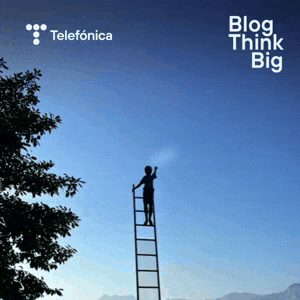In today's society, there's a lot of talk about the importance of multitasking? But can our brains do several things at the same time?
You arrive at the office after getting up at the crack of dawn, sitting through two traffic jams, and still half asleep. On your desk, three reports to read for the 9:30 meeting, but first you have to check all of the emails that are stacking up in your inbox. Phone calls, a stream of people knocking on your office door, and new problems just around the corner waiting to put your brain in a tizzy. Will you be able to multitask and be able to handle everything during the day? What does science have to say?
Attention is one of the most important cognitive functions of our brains. The brain receives thousands of stimuli every day, and it has to be able to distinguish between what’s important and what’s not: focusing on one task, and letting other less important signals ‘pass by’. It’s impossible to pay attention to everything all the time.

Is it feasible to do two or three tasks at the same time as efficiently as possible? Our brains, in order to optimise performance, are incapable of multitasking. A report prepared by the US National Safety Council makes it very clear: multitasking is a myth.
In order to be able to do two tasks, the brain must sequence and prioritise their execution. In other words, it will first consider one activity, and then it will do the other. If you want to do two things at once (for example driving and talking on the phone, or looking at email and attending to a visitor), your mind will order the execution of the tasks, concentrating different degrees of attention in separate and distinct phases.
Between these phases, the brain needs a specific reaction time to be able to switch from one task to the other. This space of time may not be very important if you’re reading reports and looking at your email at the same time, but it’s crucial while you’re driving; a minor distraction of just a few seconds could cost you your life. This ‘distraction’, better known as interference, has been studied in a number of neuro-cognitive research studies.

One study done by scientists at Carnegie Mellon University in the US and the University of Groningen examined whether it was possible to optimise the decisions between two tasks in order to reduce the interference time and adapt better to that utopia called multitasking.
The study, published in PLoS One, found that the majority of the participants were susceptible to the effects of interference. Proper training also helped enable them to sequence the tasks (instead of doing them at the same time), in order to optimise efficiency.
Maybe instead of thinking of being multitaskers, we might want to consider being more orderly when carrying out our activities: organising them in order of importance and trying to be ‘consecutive’ could help make us much more effective. To do this, different applications and services can be a big help when managing and organising pending tasks.
Images | Willy66 (Pixabay), Ryan Ritchie (Flickr), Geralt (Pixabay)









